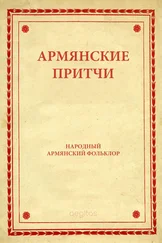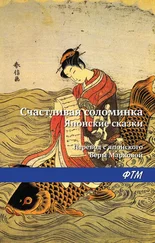Richard F. Burton
A plain and literal translation of the Arabian nights entertainments, now entituled The Book of the Thousand Nights and a Night Volume 7 (of 17)
“TO THE PURE ALL THINGS ARE PURE.”
(Puris omnia pura)
—Arab Proverb.
“Niuna corrotta mente intese mai sanamente parole.”
—“Decameron”—conclusion.
“Erubuit, posuitque meum Lucretia librum
Sed coram Bruto. Brute! recede, leget.”
—Martial.
“Mieulx est de ris que de larmes escripre,
Pour ce que rire est le propre des hommes.”
—Rabelais.
“The pleasure we derive from perusing the Thousand-and-One Stories makes us regret that we possess only a comparatively small part of these truly enchanting fictions.”
—Crichton’s “
History of Arabia .”
Continuation of the History of Gharib and His Brother Ajib
Now when it was the Six Hundred and Thirty-seventh Night,
Shahrazad continued, It hath reached me, O auspicious King, that Sa’adan having broken into the palace of King Jamak and pounded to pieces those therein, the survivors cried out, “Quarter! Quarter!”; and Sa’adan said to them, “Pinion your King!” So they bound Jamak and took him up, and Sa’adan drove them before him like sheep and brought them to Gharib’s presence, after the most part of the citizens had perished by the enemy’s swords. When the King of Babel came to himself, he found himself bound and heard Sa’adan say, “I will sup to-night off this King Jamak:” whereupon he turned to Gharib and cried to him, “I throw myself on thy mercy.” Replied Gharib, “Become a Moslem, and thou shalt be safe from the Ghul and from the vengeance of the Living One who ceaseth not.” So Jamak professed Al-Islam with heart and tongue and Gharib bade loose his bonds. Then he expounded The Faith to his people and they all became True Believers; after which Jamak returned to the city and despatched thence provaunt and henchmen to Gharib; and wine to the camp before Babel where they passed the night. On the morrow, Gharib gave the signal for the march and they fared on till they came to Mayyáfárikín, 1 1 Mayyáfárikín, whose adjective for shortness is “Fárikí”: the place is often mentioned in the Nights as the then capital of Diyár Bakr, thirty parasangs from Násibín, the classical Nisibis, between the upper Euphrates and Tigris.
which they found empty, for its people had heard what had befallen Babel and had fled to Cufa-city and told Ajib. When he heard the news, his Doom-day appeared to him and he assembled his braves and informing them of the enemy’s approach ordered them make ready to do battle with his brother’s host; after which he numbered them and found them thirty thousand horse and ten thousand foot. 2 2 This proportion is singular to moderns but characterised Arab and more especially Turcoman armies.
So, needing more, he levied other fifty thousand men, cavalry and infantry, and taking horse amid a mighty host, rode forwards, till he came upon his brother’s army encamped before Mosul and pitched his tents in face of their lines. Then Gharib wrote a writ and said to his officers, “Which of you will carry this letter to Ajib?” Whereupon Sahim sprang to his feet and cried, “O King of the Age, I will bear thy missive and bring thee back an answer.” So Gharib gave him the epistle and he repaired to the pavilion of Ajib who, when informed of his coming, said, “Admit him!” and when he stood in the presence asked him, “Whence comest thou?” Answered Sahim, “From the King of the Arabs and the Persians, son-in-law of Chosroë, King of the world, who sendeth thee a writ; so do thou return him a reply.” Quoth Ajib, “Give me the letter;” accordingly Sahim gave it to him and he tore it open and found therein:—“In the name of Allah the Compassionating, the Compassionate! Peace on Abraham the Friend await! But afterwards. As soon as this letter shall come to thy hand, do thou confess the Unity of the Bountiful King, Causer of causes and Mover of the clouds; 3 3 Such is the bathos caused by the Saja’-assonance: in the music of the Arabic it contrasts strangely with the baldness of translation. The same is the case with the Koran, beautiful in the original and miserably dull in European languages; it is like the glorious style of the “Anglican Version” by the side of its bastard brothers in Hindostani or Marathi; one of these marvels of stupidity translating the “Lamb of God” by “God’s little goat.”
and leave worshipping idols. An thou do this thing, thou art my brother and ruler over us and I will pardon thee the deaths of my father and mother, nor will I reproach thee with what thou hast done. But an thou obey not my bidding, behold, I will hasten to thee and cut off thy head and lay waste thy dominions. Verily, I give thee good counsel, and the Peace be on those who pace the path of salvation and obey the Most High King!” When Ajib read these words and knew the threat they contained, his eyes sank into the crown of his head and he gnashed his teeth and flew into a furious rage. Then he tore the letter in pieces and threw it away, which vexed Sahim and he cried out upon Ajib, saying, “Allah wither thy hand for the deed thou hast done!” With this Ajib cried out to his men, saying, “Seize yonder hound and hew him in pieces with your hangers.” 4 4 This incident is taken from the Life of Mohammed who, in the “Year of Missions” (A.H. 7) sent letters to foreign potentates bidding them embrace Al-Islam; and, his seal being in three lines, Mohammed | Apostle | of Allah, Khusrau Parwíz (= the Charming) was offended because his name was placed below Mohammed’s. So he tore the letter in pieces adding, says Firdausi, these words:—
So they ran at Sahim; but he bared blade and fell upon them and slew of them more than fifty braves; after which he cut his way out, though bathed in blood, and won back to Gharib, who said, “What is this case, O Sahim?” And he told him what had passed, whereat he grew livid for rage and crying “Allaho Akbar—God is most great!”—bade the battle-drums beat. So the fighting-men donned their hauberks and coats of strait-woven mail and baldrick’d themselves with their swords; the footmen drew out in battle-array, whilst the horsemen mounted their prancing horses and dancing camels and levelled their long lances, and the champions rushed into the field. Ajib and his men also took horse and host charged down upon host.–And Shahrazad perceived the dawn of day and ceased to say her permitted say.
Now when it was the Six Hundred and Thirty-eighth Night,
She pursued, It hath reached me, O auspicious King, that when Gharib and his merry men took horse, Ajib and his troops also mounted and host charged down upon host. Then ruled the Kazi of Battle, in whose ordinance is no wrong, for a seal is on his lips and he speaketh not; and the blood railed in rills and purfled earth with curious embroidery; heads grew gray and hotter waxed battle and fiercer. Feet slipped and stood firm the valiant and pushed forwards, whilst turned the faint-heart and fled, nor did they leave fighting till the day darkened and the night starkened. Then clashed the cymbals of retreat and the two hosts drew apart each from other, and returned to their tents, where they nighted. Next morning, as soon as it was day, the cymbals beat to battle and derring-do, and the warriors donned their harness of fight and baldrick’d 5 5 This “Taklíd” must not be translated “girt on the sword.” The Arab carries his weapon by a baldrick or bandoleer passed over his right shoulder. In modern days the “Majdal” over the left shoulder supports on the right hip a line of Tatárif or brass cylinders for cartridges: the other cross-belt (Al-Masdar) bears on the left side the Kharízah or bullet-pouch of hide; and the Hizám or waist-belt holds the dagger and extra cartridges. (Pilgrimage iii. 90.)
Читать дальше












